New Kingdom for Old
Posted October 19,2011
NIGER, Western Africa — Timbuktu. The name inspires images of far-away lands, mythical realms and immense wealth. Many people are unaware the city actually does exist. Timbuktu was only one of a myriad of splendid cities within the Songhai Empire. For more than two centuries, the Songhai dynasty ruled most of central West Africa, supported by a flourishing trade in gold and salt.
“They were a rare combination of military and mystic might – they had these great warriors, but they also were these sorcerers and magicians who controlled the spirits, and could master the spirits of the river,” says John Smythe,* an IMB missionary who’s been working among the Songhai of Niger since 2006.
Ruled by a dynasty of Muslim kings, the empire expanded through a combination of practical politics and holy war. The meteoric rise of the Empire was matched by its sudden invasion and downfall in 1591.
 Modern Songhai are mainly subsistence farmers, coaxing millet and rice out of the clay of the Niger River valley. It’s a land of flat-topped hills and wide, washed-out valleys, with deep, rain-cut channels between. Pale red clay and dark brown stone contrast oddly, like a bizarre sand painting.
Modern Songhai are mainly subsistence farmers, coaxing millet and rice out of the clay of the Niger River valley. It’s a land of flat-topped hills and wide, washed-out valleys, with deep, rain-cut channels between. Pale red clay and dark brown stone contrast oddly, like a bizarre sand painting.
Songhai villages consist of mud-brick houses; walls surround spacious, if bare, yards. Trash litters the streets – there is no other place for it. Animals wander wherever acacia fences do not keep them out. Village life is highlighted by scent. The heat bakes out the odor of moist sand and green growth. The smell of sweat and wood smoke is prevalent.
“Community is life” to the Songhai, explains Smythe. “They understand that tomorrow, ‘I might not have enough rice to feed my family, so I’d better rely on the community.’”
While officially Muslim, the Songhai generally practice animism – alongside daily prayers and reciting the Quran, “there’s still spirit possession ceremonies. … They are involved in all sorts of witchcraft,” says Smythe. Less than one percent of the population is Christian.!["We think about kingdoms and ancient kingdoms, [and] the Songhai really embody what that means," says Smythe. "They had one of the greatest empires in all of Africa."](/wp-content/uploads/2011/10/2011227MED1568-166x250.jpg)
Out of the ruins of vanished empires and ancient superstitions, however, a new kingdom is being built among the Songhai, shares Smythe, “a kingdom not built with human hands, a kingdom that’s being built by God made out of living stones.”
This kingdom has not been built without struggle. According to Smythe, Songhai conversion is “a traumatic experience.” Those who step outside of accepted practices are ostracized, even exiled, by their communities. Many villagers refuse to buy or sell with a convert, and family members often shun believers. Pressure to return to the old ways comes from all directions.
One new believer must now eat outside every time he visits his in-laws, as they regard non-Muslims as unclean. Another told his family of his conversion and returned home that night to find all his possessions in a bag outside. Believers are often told, “Only white people can be Christians.”
 The harshest confrontation came after Smythe and his family moved away from the small town where they had been ministering for three years, when a believer’s wife died suddenly. Ibrahim had been a dedicated Muslim who prayed five times daily, gave charity, and donated animals for religious festivals. “I thought in my heart if I [did these things], I was receiving forgiveness,” he says. “I could never know that in my heart … if I was being forgiven or not.”
The harshest confrontation came after Smythe and his family moved away from the small town where they had been ministering for three years, when a believer’s wife died suddenly. Ibrahim had been a dedicated Muslim who prayed five times daily, gave charity, and donated animals for religious festivals. “I thought in my heart if I [did these things], I was receiving forgiveness,” he says. “I could never know that in my heart … if I was being forgiven or not.”
After repeatedly dreaming of a light “that was Jesus Christ” coming between him and enveloping darkness, Ibrahim became a determined Christian despite rejection by his neighbors and refusal of business. His dedication and encouragement soon led his wife to Christ as well.
When his wife died, the village leaders, noting neither Ibrahim nor his wife were Muslim, refused to have her buried, claiming she would be treated like an animal and left to rot. Only if Ibrahim confessed Islam would his wife be buried and prayed for as culturally required. He refused, and set out to bury his wife alone, but the other believers rallied around him and aided him.
This unity in the face of cruel rejection was a turning point for the local church. It demonstrated the church could endure, even without the Smythes’ presence. “It was [a] testimony that, ‘We are not going to go back to our old faith, that we’re here to stay,’” claims Smythe, who now lives two hours away in Niger’s capital city.
In the face of opposition, the Smythes and their team “literally got to watch history change,” as this small group of believers grew into the first church ever seen in the region. That church “has continued to grow and understand what it means to be the church,” says Smythe. “… They are a true community that gives as anyone has need and shares as anyone has need.”
The transformation of believers is apparent to their village. Boubacar, once the “number-one bandit” in town and leader of the local fadah, or gang, was so altered that his friends asked him what medication he was on; he claimed, “My medicine is Jesus Christ.”
Boubacar stopped smoking, drinking and fighting, and even broke off an engagement. Three days after Boubacar’s conversion, Smythe discovered he intended to take a second wife, a practice common and perfectly acceptable to the Songhai. Smythe, with some unease, shared God’s plan for marriage as found in Genesis. Smythe relates: “His eyes just got huge, and I thought, ‘Oh man, he’s gonna hit me!’ And he looked me and he said, ‘I had no idea God’s Word said that.’” Boubacar went that very day to break off the engagement, despite having already paid the bride price. When asked about his decision, he claimed, “Everything Jesus says, that’s what I want to do.”
 Boubacar was one of the believers who came alongside Ibrahim to bury his wife. His example has led many of his former fadah members to become believers.
Boubacar was one of the believers who came alongside Ibrahim to bury his wife. His example has led many of his former fadah members to become believers.
Ibrahim and Boubacar are now leaders in the town church. Men meet in Ibrahim’s compound to sing worship songs, pray together and listen to the Proclaimer, an audio Bible in the Songhai language. Women believers meet separately, or listen to the Proclaimer with their husbands at home.
“You can’t see a building,” Smythe says about the blossoming movement among the Songhai. “Instead it’s a group of men, it’s a group of ladies huddled under a tree praying together, it’s a group studying God’s Word under a hanger, and it’s a new kingdom being ushered in. … It’s that kingdom that’s going to endure.”
To learn how you can partner with missionaries among the Songhai, visit Seeking the Songhai, which has information on the team’s progress as well as prayer focuses, team hosting opportunities, and partnership and trip applications. A monthly newsletter is also available.
*Name changed
Jacqueline Gordon is serving for five months as a writer with the IMB’s Global Communication Team.






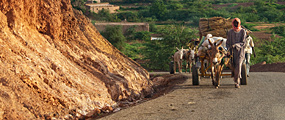
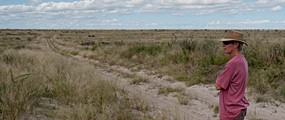

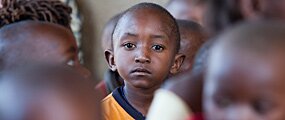
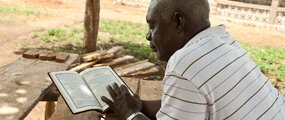


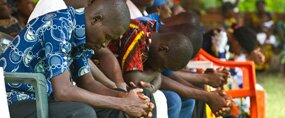
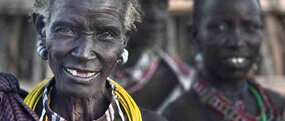
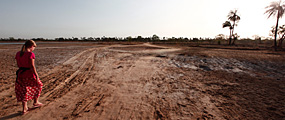
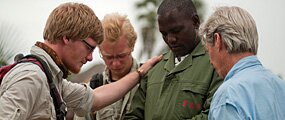

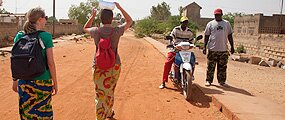

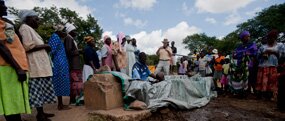
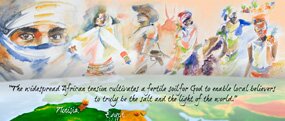

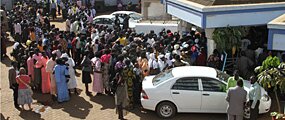
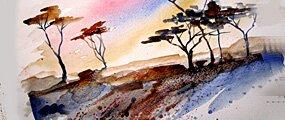



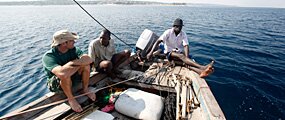
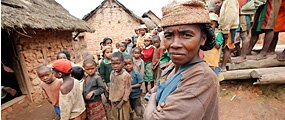

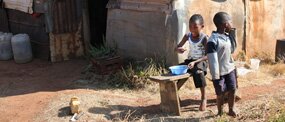
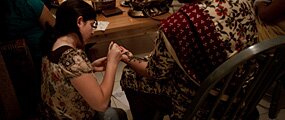
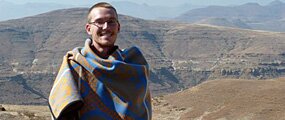



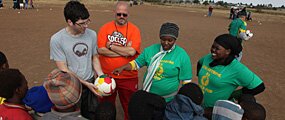

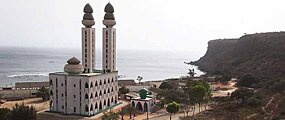
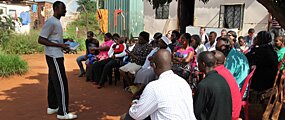

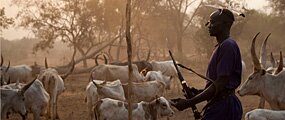

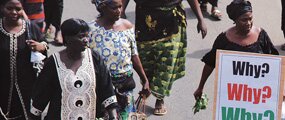
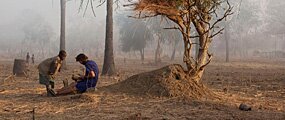
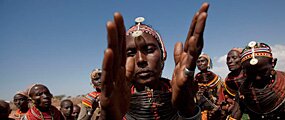

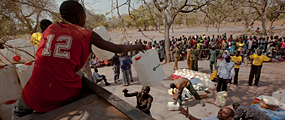
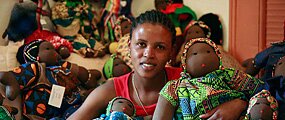
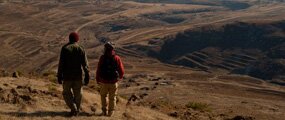
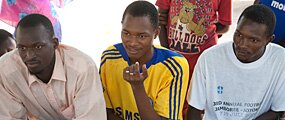

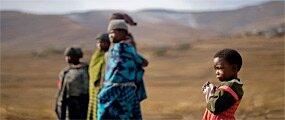

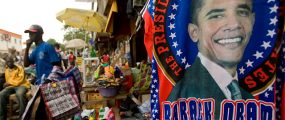
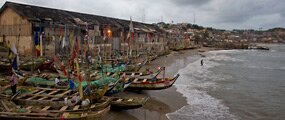

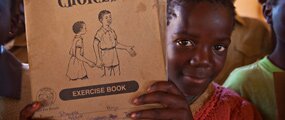









I had the priviledge of leading a Bible study with these men in February. It was a very moving experience to hear their testimonies and share with them. I was impressed how God is teaching them through listening to the Bible being read on CD. God is teaching them just like he taugt Paul in the desert. Pray for continued dreams and visions among muslim people and for thier resistance to be overcome.
Bless you for being willing to go the distance to reach these people. One of the things that most struck me was how desperately the Songhai live, how little certainty or assurance they have. The surety of Jesus’ sacrifice is cherished by those who believe, and their faith in the midst of persecution is a great testimony.
…a story worthy of the Kingdom!
Thanks!
Wow, awesome story. Jacqueline you did an amazing job with this one!
Thank you! I had a some great subject matter.
Loved reading this!! I lived in this village for a semester and stayed in the same compound with Ibrahim and his family. He became a believer only weeks after we returned to the U.S., and in our time there he also told us about his dreams and we had many talks about the wide path of destruction and the narrow path leading to life. These people and this village are forever in my heart.
Awesome to hear another chapter of his story! For everyone who has ministered to him, it must be so amazing to see how he has grown in Christ and stood for Him.